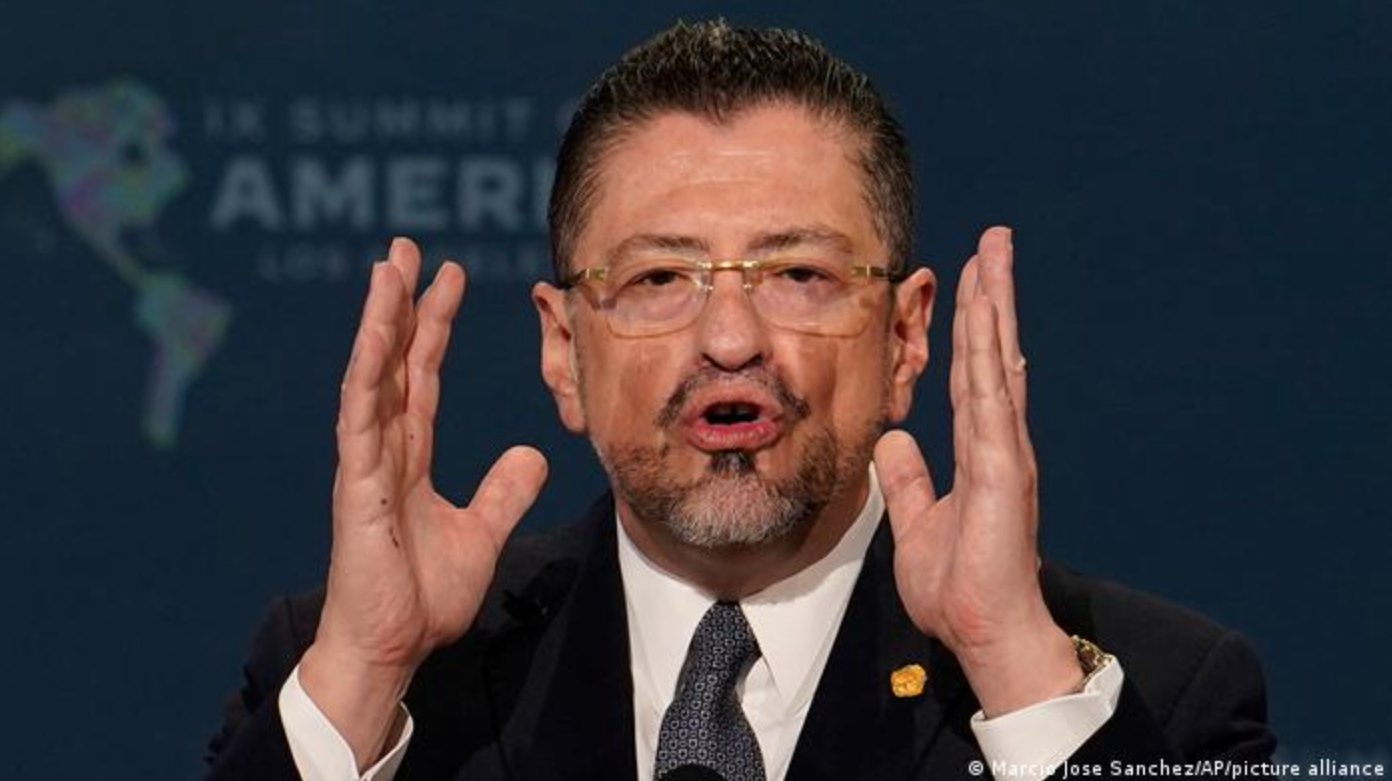The first one hundred days of government are a classic period in which rulers, opposition forces, and analysts focus on evaluating what has been achieved. It is an exercise that is halfway between accountability and propaganda. At the same time, it is also useful for all involved to verify whether what was predicted after the electoral triumph has coincided with reality once the new government was formed. But it is also useful to contrast what is happening in a given country with the broader dynamics in the neighborhood. Are regional trends consolidating? In other words, to what extent is the idea that each country is exceptional true?
In Latin America, Costa Rica is a country that attracts little attention and possesses three characteristics that make it an unusual case. Its democracy is the longest-lived in the region. For the last seven decades, it has periodically elected its rulers without interruption. Since 1949, after a brief civil war, it has had no armed forces. Unsurprisingly, the different indexes that evaluate the quality of democracy place it among the most advanced countries in Latin America. Nevertheless, its last elections brought with them the validation of political patterns common in the neighborhood.
Costa Rica is a case that, by breaking with certain practices of the past, such as the two-party system and the survival of a traditional political class, is fully in line with the new political times. It exists within the framework of tired democracies, which can be defined by society’s discomfort with politics, and a galloping crisis of representation that is affecting the performance of political parties. These parties are increasingly numerous, volatile, and exist with multiple and discontinuous identities. In turn, this is an era in which the common and exponential denominator of the digital world configures new political scenarios that break relatively stable frameworks that existed until just a decade ago.
There are four elements that make up a pattern that is increasingly less alien in a region in which there is a clear constant – presidentialism as a form of government. First, the winning candidate is someone alien to the usual political life of the country, with very little experience in the management of the State and with unproven political skills. Then, the President puts in place a government and a public administration, recruiting staff with the help of unclear co-optation criteria.
Secondly, the new President’s relationship with the partisan universe is distant and purely instrumental. This is because the political party, which was once a necessary mechanism to achieve the candidacy, becomes a straitjacket from which the new President gradually distances themselves And then, the reduced parliamentary strength of the party in question, as a result of the weak electoral momentum received in the first round of the presidential election (in Costa Rica’s case there were 25 candidates from the President’s party in Parliament) makes it far from constituting a parliamentary majority. This further incentivizes the President to distance themselves. After the inauguration, the President, thanks to the resources of power at their disposal, begins to build a power base on the basis of individual backings and loyalties.
Thirdly, the traditional political class, which has accumulated years of discredit as a consequence of a string of corrupt practices, the impunity with which it carries itself, and the inability to connect with the new generations, unconsciously provides arguments for the new Executive to build an alternative discourse. Furthermore, the formerly dominant traditional media and, its occasional connivance with intellectual elites contributes to the new narrative being nourished by a “populist” logic. This is often accompanied by business sectors aligned with the government.
Finally, encouraged by the management of a communication campaign in the hands of experts, the President develops a media agenda where the management of affective polarization in the form of a dichotomous friend-enemy logic favored by presidentialism stands out. For this, the management of social networks is fundamental. As in the case of Costa Rica, the use of fictitious accounts can help to achieve high popularity rates. On the other hand, the President’s weekly appearance after Cabinet meetings in which second questions or requests for clarification to the initial answers are not usually allowed marks the weekly political agenda.
President Rodrigo Chaves, estranged from the country for three decades, stands today with an approval rating of 70%. His popularity is a vivid image of the first hundred days of current Costa Rican politics that projects a state of affairs best identified with the aspects pointed out above. But no less popular is his de facto political partner, the very well-known broadcaster, Pilar Cisneros. She is now a star deputy of the Legislative Assembly. She brought him an enormous number of votes thanks to her popularity; although she herself is unable to handle the spontaneity of parliamentary oratory and uses in her congressional speeches a teleprompter acquired with her own funds.
All this constitutes a scenario similar to those in other Latin American countries. All of which are heading towards the dangerous stage of chronic fatigue, which is accentuated in the region after the pandemic and the present economic crisis. When combined, these factors may be the prelude to a dramatic surge of deinstitutionalization. In other words, a political system dominated by the extreme personalism of narcissistic leaders, the blurring of parties in a societal environment of multiple identities, as well as individualistic paroxysm, and the exponential development of the digital society with its new forms of interaction, access to information, and the rule of the algorithm.
*Translated from Spanish by Alek Langford













